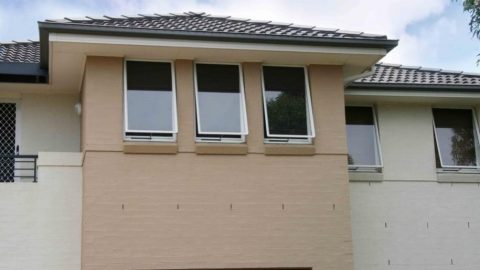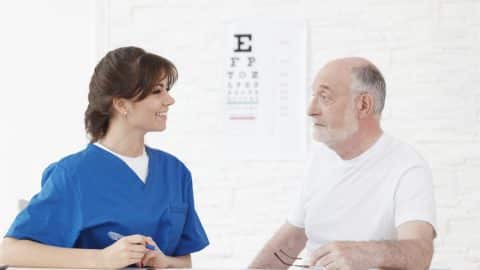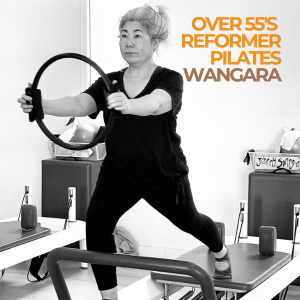For many Australian seniors, a good night’s sleep can feel increasingly elusive. Between the natural changes in sleep patterns that come with age and various health conditions, achieving restful sleep becomes a significant challenge. One condition in particular—sleep apnea—affects a disproportionate number of older adults and can severely impact quality of life when left untreated.
Understanding Sleep Apnea in Seniors
Sleep apnea is a disorder characterised by repeated interruptions in breathing during sleep. These interruptions, which can occur dozens or even hundreds of times per night, prevent sufferers from achieving deep, restorative sleep and can lead to serious health complications.
For seniors, the prevalence of sleep apnea is notably higher than in younger populations. Research suggests that up to 70% of elderly individuals may experience some form of sleep-disordered breathing, with obstructive sleep apnea (OSA) being the most common type.
Why Seniors Are More Vulnerable
Several factors contribute to the increased risk of sleep apnea in older adults:
- Physical changes: Age-related muscle tone loss in the throat can lead to more frequent airway collapse
- Weight distribution: Changes in body composition can increase pressure on airways
- Medication effects: Many medications commonly prescribed to seniors can affect breathing patterns
- Comorbid conditions: Health issues like heart disease and diabetes, which are more common in seniors, are linked to higher sleep apnea rates
The Hidden Dangers of Untreated Sleep Apnea
When sleep apnea goes unaddressed, it doesn’t just result in daytime fatigue. For seniors, the consequences can be particularly severe:
- Increased risk of falls and accidents due to daytime drowsiness
- Cognitive decline and memory problems that may be mistaken for dementia
- Worsened cardiovascular health, including a higher risk of heart attack and stroke
- Compromised immune function leading to slower recovery from illness
- Reduced quality of life and increased depression risk
Perhaps most concerning is that many seniors dismiss their symptoms as “just part of getting older,” allowing the condition to progress without intervention.
CPAP Therapy: A Proven Solution
The good news is that effective treatment exists. Continuous Positive Airway Pressure (CPAP) therapy has proven to be the gold standard treatment for sleep apnea. These devices deliver a constant stream of pressurised air through a mask worn during sleep, keeping the airway open and preventing breathing interruptions.
For seniors experiencing sleep apnea, using a CPAP Machine regularly, along with properly fitted CPAP Masks can be truly life-changing. Benefits typically include:
- Improved sleep quality with fewer interruptions
- Enhanced daytime alertness and energy
- Better cognitive function and sharper memory
- Reduced blood pressure and improved heart health
- Decreased risk of serious health complications
Many seniors report feeling “like a new person” after just a few weeks of consistent therapy.
Overcoming Barriers to CPAP Use for Seniors
Despite the clear benefits, some seniors face challenges when adapting to CPAP therapy:
Comfort Concerns
Modern CPAP technology has come a long way in terms of comfort and usability. Today’s devices offer:
- Various mask styles to suit different sleeping positions and preferences
- Heated humidification to prevent dryness and irritation
- Quieter operation for less disturbance to sleep
- Auto-adjusting pressure that responds to your needs throughout the night
Physical Limitations
For seniors with arthritis or limited dexterity, handling CPAP equipment might seem daunting. Solutions include:
- Easy-to-operate machines with simple interfaces
- Mask designs that don’t require complicated adjustments
- Setup assistance from healthcare providers or family members
- Regular maintenance support from CPAP providers
Psychological Adjustment
The idea of wearing a mask during sleep can take some getting used to. Successful adaptation strategies include:
- Starting with short periods of use during daytime naps
- Gradually increasing usage time
- Practising relaxation techniques before bedtime
- Joining support groups with other CPAP users
Tips for Seniors Starting CPAP Therapy
If you’re considering CPAP therapy or have recently been prescribed a machine, these tips can help ensure success:
- Be patient with yourself. Adjustment takes time, but the benefits are worth it.
- Ensure proper fit. Work with your provider to find the most comfortable mask for your face shape and sleeping style.
- Establish a routine. Make CPAP use part of your regular bedtime ritual.
- Keep equipment clean. Regular cleaning prevents skin irritation and ensures optimal performance.
- Track your progress. Many modern CPAP devices can monitor your usage and effectiveness, helping you see improvements.
- Address issues promptly. If you experience discomfort or difficulties, speak with your healthcare provider rather than abandoning treatment.
The Role of Caregivers and Family
Family members and caregivers can play a crucial role in supporting seniors with CPAP therapy:
- Encouraging consistent use with positive reinforcement
- Assisting with equipment setup and maintenance
- Helping to monitor progress and improvements
- Communicating with healthcare providers about any concerns
The support of loved ones significantly increases the likelihood of successful adaptation to CPAP therapy.
Beyond CPAP: Complementary Approaches
While CPAP therapy is the primary treatment for sleep apnea, seniors can amplify its benefits through additional lifestyle measures:
- Weight management, as excess weight contributes to airway obstruction
- Side sleeping, which can reduce apnea episodes in some individuals
- Avoiding alcohol and sedatives before bedtime
- Establishing consistent sleep schedules to improve overall sleep quality
- Elevating the head of the bed to reduce airway collapse
Conclusion
Sleep apnea may be common among seniors, but it should never be dismissed as an inevitable part of aging. With proper diagnosis and treatment using quality CPAP devices, older Australians can reclaim restful sleep and improve their overall health and quality of life.
If you’re experiencing symptoms like excessive daytime sleepiness, loud snoring, or witnessed breathing pauses during sleep, speak with your healthcare provider about assessment for sleep apnea. Effective solutions, including comfortable CPAP Masks, can help you return to the restful, rejuvenating sleep you deserve.
Remember, good sleep isn’t a luxury—it’s an essential component of health at every age, and especially important for maintaining independence and wellbeing in your senior years.















